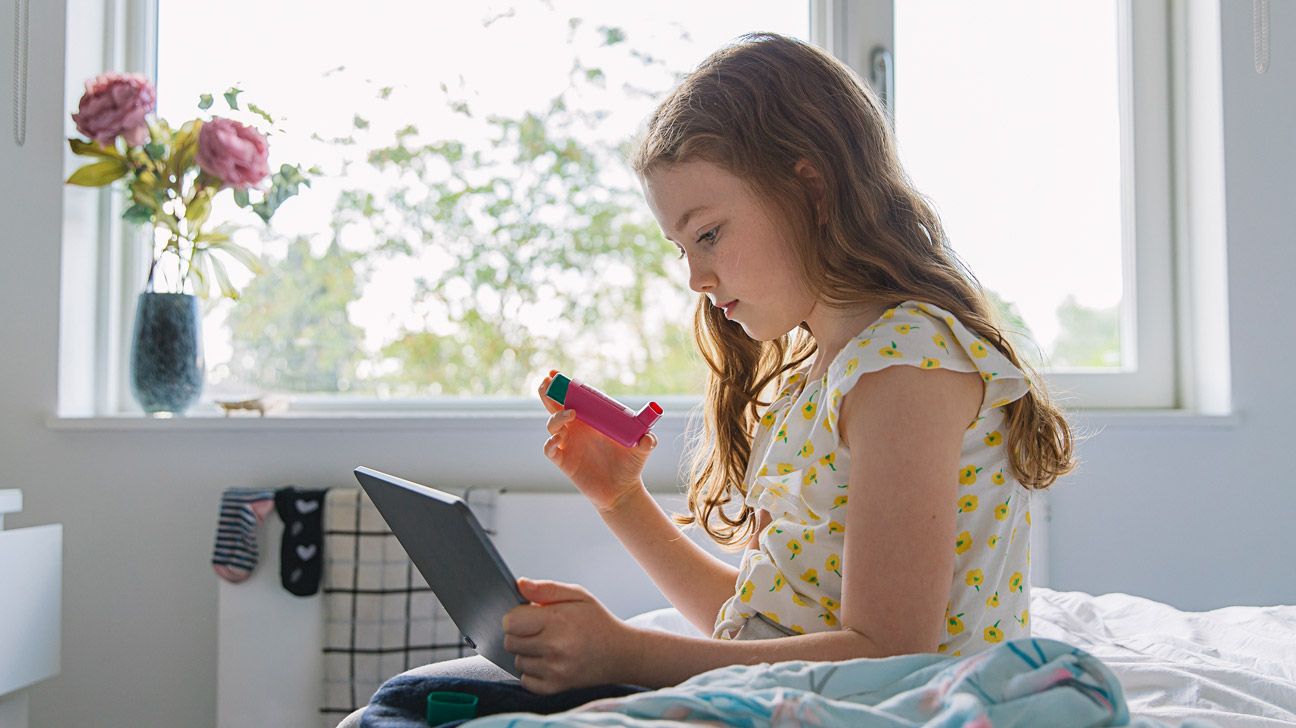Childhood asthma is likely related to a combination of environmental and biological factors. Exercise, smoke, infections, and allergies are some things that can trigger worsening asthma symptoms.

One of the scariest sounds a parent can hear is their child gasping for air. Asthma, a respiratory condition where the airways become inflamed, is a common cause of breathing difficulties in children.
Although the exact reason children develop asthma is unknown, cases of childhood asthma frequently appear to have a connection with infections, allergens, and a family history of asthma.
Many things may trigger asthma symptoms in children — exercise, emotional triggers, environmental pollutants, viruses, or allergens.
Your child’s doctor can help you create an action plan, so you know what to do if breathing difficulties occur.
Learn more about asthma in children.
The exact reason a child develops asthma is unknown, but both
While not everyone with asthma has allergies, there is a known link between allergies and asthma.
Allergies may increase the chances of developing asthma and can trigger worsening asthma symptoms.
Still, even if childhood asthma appears to be related to allergens, non-allergens like stress, weather conditions, or illness can trigger it.
Children with a family history of asthma are at a
While the exact cause of asthma is unclear, biological and environmental factors can trigger asthma symptoms to worsen. Some common triggers include:
- cold and flu infections
- allergens like pollen
- mold, dust, and animal dander
- smoke and other forms of air pollution
- strong emotions
- changes in the weather
- exercise
Treatment for asthma often includes several steps.
Avoiding triggers
Daily medication
Daily medications may also manage symptoms and prevent asthma attacks. If your child’s asthma is related to allergies, their doctor may recommend allergy shots.
Rescue inhalers
In the case of an attack, quick relief inhalers (also known as rescue inhalers) may offer immediate relief.
Following an asthma action plan
If your child has asthma, their doctor may create an asthma action plan that includes triggers to avoid, signs of an attack, medications to prevent and treat attacks, and when to get further medical help.
When asthma begins in early childhood, there is an
Medical treatments may be necessary to manage asthma throughout your life if you have childhood asthma.
While some children with asthma may notice a significant improvement as they age, symptoms may return when individuals are in their 30s or 40s.
What is the main cause of asthma in children?
The exact cause of asthma is often unknown, and it may develop due to a combination of factors. Experts frequently associate asthma in children with allergies, exposure to smoke, viruses, and a family history of asthma.
Allergens, viruses, smoke, strong emotions, and exercise may trigger it.
Is childhood asthma curable?
There is no cure for asthma, but you can manage it with treatment. Some children with asthma experience a reduction in symptoms as they age.
Why has my child suddenly developed asthma?
A variety of things, including cold or flu viruses, smoke, strong emotions, exercise, and even weather changes may trigger asthma symptoms. Allergens like pets, mold, and pollen are also common asthma triggers.
Signs of asthma are common during childhood. The exact cause of childhood asthma is unknown, but experts often associate it with allergens, infections, and a family history of asthma.
Pollution, allergens, and infections may trigger asthma attacks.
If you believe that your child has asthma, it’s important to speak with their doctor and develop an action plan. Even though there is no cure for asthma, it’s manageable with monitoring and medications.

